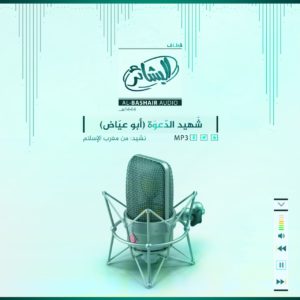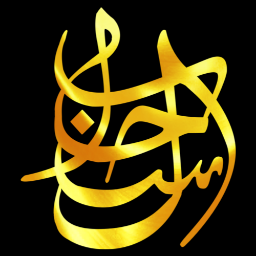
________________
Source: Telegram
To inquire about a translation for this nashīd for a fee email: [email protected]

________________
Source: Telegram
To inquire about a translation for this nashīd for a fee email: [email protected]

________________
To inquire about a translation for this video message for a fee email: [email protected]

_____________
Source: Telegram
To inquire about a translation for this video message for a fee email: [email protected]

Twenty years ago today, Tunisians helped carry out the assassination of Afghan Northern Alliance leader Ahmad Shah Massoud two days before the 9/11 attacks. In the late 1990s, Massoud had been a key U.S. ally against the Taliban’s advances, and although his fortunes had changed significantly by 2001, Washington would no doubt have relied on him heavily during the post-9/11 invasion were he still alive. Flash forward to this week, and the Taliban has just declared victory over resistance forces led by Massoud’s son Ahmad in the Panjshir Valley—a sobering bookend to a battle the group has been waging against the Northern Alliance for two decades.
Yet the heavy Tunisian involvement and other circumstances of the 2001 assassination merit a closer look, not only for their impact on subsequent developments in the global jihadist movement, but also because of the implications they hold now that Afghanistan is once again under Taliban control. Massoud’s death served multiple purposes, some of which were not entirely evident until after the fact: his killing was a gift that the Tunisian Combat Group (TCG) and al-Qaeda gave the Taliban for fighting their local enemy, as well as a public signal to launch the 9/11 attacks and an important part of al-Qaeda’s preparations for the eventual coalition invasion of Afghanistan. This is the story of the assassination, who was behind it, and why it still matters for individuals attempting to understand how jihadist networks change over time—and what types of operatives may now return to Afghanistan.
Click here to read the rest.
The title of this release is in reference to Qur’anic verse 2:191. Here it is in full: “And kill them wherever you overtake them and expel them from wherever they have expelled you, and fitnah is worse than killing. And do not fight them at al-Masjid al- Haram until they fight you there. But if they fight you, then kill them. Such is the recompense of the disbelievers.”
—

_______________
To inquire about a translation for this video message for a fee email: [email protected]
Nestled into the ISIS Reader: Milestone Texts of the Islamic State Movement is a brief mention of a Tunisian that went by kunya Abu Usamah al-Tunisi. Based on primary source research for my own book, Your Sons Are At Your Service: Tunisia’s Missionaries of Jihad, Abu Usamah came to Iraq at the latest in early 2004 and fought in the Battles of Fallujah where his close relationship with both Abu Mus’ab al-Zarqawi and Abu Hamzah al-Muhajir led to his rise in the organization: first as the military leader of Baghdad’s southern belt and later as the leader of Majlis Shura al-Mujahidin (MSM)/the Islamic State of Iraq’s (ISI) entire foreign fighter operation. His closeness to al-Zarqawi and al-Muhajir might also help explain why Abu Usamah appeared as one of the masked individuals in the video that showed the beheading of the American Nicholas Berg in May 2004. More importantly, the fact that Tunisians held high-level positions, especially ones related to foreign fighting, helps explain why so many Tunisians would later become connected to these networks that helped recruit people to fight in Iraq, Libya, and Syria after 2011. Abu Usamah would eventually be killed in a U.S. airstrike in the city of Musayyib, in Babil Province, on September 25, 2007, along with a number of other senior ISI leaders.
Although many Tunisians partook in jihadism prior to the Iraq war, the war inspired a new generation and cadre of individuals. For example, Hasan al-Brik, who would become Ansar al-Sharia in Tunisia’s (AST) head of dawa after the 2011 Tunisian revolution, traveled to Iraq in 2003. Like many others, he did not actually make it into Iraq, but rather took charge of a safe house in Syria where individuals were vetted before travelling to Iraq. For the Tunisians who survived, many, including al-Brik, would be arrested in Syria (and elsewhere) and rendered back to Tunisia to be placed into its prison system. Tunisia’s prisons in the seven to eight years before the revolution would be crucial for bringing together the first generation of Tunisian jihadis associated with Afghanistan and Europe-based networks and the second generation more associated with Iraq and the GSPC/AQIM networks. This prison exchange between the first and second generations of Tunisian jihadis would provide AST’s base for activities after the 2011 revolution and later the foreign fighter mobilization to Iraq, Libya, and Syria to either join Ansar al-Sharia in Libya, Jabhat al-Nusrah, or the Islamic State.
My book provides a lot of details on the Tunisians that joined the Iraq jihad, around 5,000 words in all. Due to that length and the focus of the ISIS Reader on primary sources, this post will highlight some details based strictly on research derived on this network from primary sources. However, if you want the entire picture, chapter four of my book gets into the entire history and story in full.
Click here to read the rest of this post.
من أعظم ما يربي النفس المسلمة مرافقة ومصاحبة العقلاء والأخيار،فالصحبة هي التربية،وما فاق الصحابة غيرهم إلا بالصحبة والمشاهدات النبوية الشريفة،وأثر الجلوس مع العقلاء ينمي العقل،واثر الجلوس مع الصالحين ينمي الخلق،وكثرة الإستماع والجلوس مع السفهاء يذهب العقل والخلق،وتستطيع أن تعرف عقل الرجل وخلقه من خلال من يجالس ويصاحب،ثم ترى هذا بيناً في كلامه وسلوكه وألفاظه.
كانت لي أيام مع خيار من الخلق،بعقولهم وأخلاقهم،وبعد طول نظر ترى أن هؤلاء أصفياء للشهادة،جاؤوا إلى هذه الدنيا ليضيؤوا زماناً بنور الخلق والعقل،ثم ترحل بهم نفوسهم للشهادة،فقد أدوا ما عليهم من إضاءة الحق في النفوس،فأقاموا حجة الله في النفوس.
وهذا قبس من النبوة،وأثر من آثارها،فلهم محامد الطاعات،ومدائح العقول،وأثر الصبر على الخلق والثبات على الدين.
لقد عشت أياماً مع صديقي أبي عياض،لا أدري كيف فرض نفسه علي،يأمرني وينهاني،غير هياب من نفرة مني لذلك،وغير متلجلج بكلمة قاسية يقولها لي،وكأنه أب لي جاء به الزمن بعد أن بدأ الشيب يخط بلونه في العوارض،وأنا في هذا كنت أسعد وأفرح،لا أرى ذلك غريباً،بل كأنه شيء فطري بيني وبينه،صنعه الحب في الله.
لم أر في حياتي أقسى وآلم من نفس تظنها تحبك،وأنك بلغت منها مبلغ الأخ الأكبر،أو الأب الحاني،ثم هي بكلمة واحدة منك تجريها عليه على هذا المعنى فإذا هي نافرة منك نفر الأوابد،مستكبرة أن تسمع كلمة واحدة تجريها على معنى الحب،فيأخذها الآخر على معنى المحاقة والمحاسبة،فتدرك أنك أخطأت العنوان.
لقد كان أبو عياض يمارس معي أبوة قاسية،بألفاظ شديدة،وكلما زاد في عيار ذلك أزداد حباً له،وقرباً منه،بل وطاعة له.
يجلسني مجلس التأديب،ومجلس المراجعة،فوالله لا أزداد إلا طاعة له،وإقراراً بفضله،إذ أراه في ذلك ابناً باراً وصديقاً صدوقاً،فهو لا يسجل لك أخطاءك ليسقطك،بل ليرقى بك في باب لا تعلم عنه إلا قليل،وهو حال النفوس البشرية،وأنا من أجهل الناس بهذا الباب.
يأتيك أبو عياض بالقلم لتكتب حين يراك كسلاناً،ويأتيك بالورق،ويجلس قبالتك ليراك تقوم بواجبك،ثم يأخذ منك ما تكتب ليبدأ بوضع لمساته،وهي جهود مضنية من الطباعة والإخراج،ثم ترى هذا الفرح العارم على وجهه وهو ينشره لك باسمك،لا ينازعك بأن له كلمة منه وفيه.
فأي نفس راقية كانت نفس أبي عياض،الشهيد الحبيب!.
ما كتبت في لندن من كتب من مقالات مجلة المنهاج،ومن كتاب جؤنة المطيبين كانت على هذا الأمر وهذه الصورة.
لم يكن الحال في لندن يصلح لصناعة البطولة غير بطولة الحب في الله،والحفاظ على دين الشباب والنساء،وتربية الأطفال في بيئة ملئت بغضب الله،وكان الشيخ أهل لهذه البطولة،ومن علمها علم أنها تمام معنى البطولة التي تصارع الجاهلية.
كان الشيخ أبو عياض سيد من يقود الشباب،فهو لا يمل ولا يكل،ويعلم خصالهم،ويديرهم بالحب،والرعاية،والكل يقر له أنه يستحق لقب الأخ الأكبر الحاني والحبيب.
فجأة رحل الشيخ،هاجر في سبيل الله،والشيخ لم يكن يشاورني في شيء يعمله،إنما هي كلمات الإخبار فقط،وكأنه يجنبني الحيرة في أبواب يعلم أنها أسقط فيها بشبر ماء،ولا أحسن العوم فيها.
كنت من لحظتها أخاف عليه عدم فهم الناس له،فليس الكل يعلم قيمة الرجال،ولا البعض يعلم كيف هي بطولة أبي عياض.
ستجد كثيرين يظنون قسوته غروراً،أو قيادته تحكماً،وأو عياض رجل قائد،وفيه خصال القيادة،ويستحقها،وشباب اليوم ينافس ويعترض،ولا يفهم قيمة الرجال،ولذلك لما شكى لي بعضهم أمر أبي عياض،علمت أن هناك خطأ في التقدير.
ما زال الناس وإلى يومنا لا يقبلون قسوة المحب،فتلك خصلة كبيرة على عقول بعضهم،بل أكثرهم،وكم أعاني من ذلك عندما أنسى نفسي،وهذا هو حال أبي عياض مع بعضهم.
رحمك الله يا أبا عياض،ورفع منزلتك،فمثلك يبكى عليه،ولا ينسى،بل كلما فقدت الناصح تذكرتك،وكلما رايت من يفهم الحياة تذكرت كلماتك،وكلما ضرب الكسل بأطنابه في نفسي تذكرت كيف كنت تقودني،وتدفعني،وتجلس مني مجلس المؤدب الحاني.
ولعل هناك بقية.
______________
Source: Telegram
To inquire about a translation for this release for a fee email: [email protected]

Click the following link for a safe PDF copy: al-Qā’idah’s General Command — Condolences and Remembrance Regarding the Martyrdom of Shaykh Abū ‘Iyādh al-Tūnisī
______________
Source: RocketChat
To inquire about a translation for this release for a fee email: [email protected]

Click the following link for a safe PDF copy: Ḥarakat al-Shabāb al-Mujāhidīn — Congratulations and Condolences On the Martyrdom of the Two Leaders Shaykh Yaḥyā Abū Hamām al-Jazā’irī, Shaykh Abū ‘Iyādh al-Tūnisī, and Their Brothers
________________
To inquire about a translation for this statement for a fee email: [email protected]

Click the following link for a safe PDF copy: al-Qā’idah in the Arabian Peninsula — Condolences on the Martyrdom of the Two Shaykhs Abū ‘Iyādh Tūnisī and Abū Hamām al-Jazā’irī
_______________
Source: RocketChat
To inquire about a translation for this statement for a fee email: [email protected]